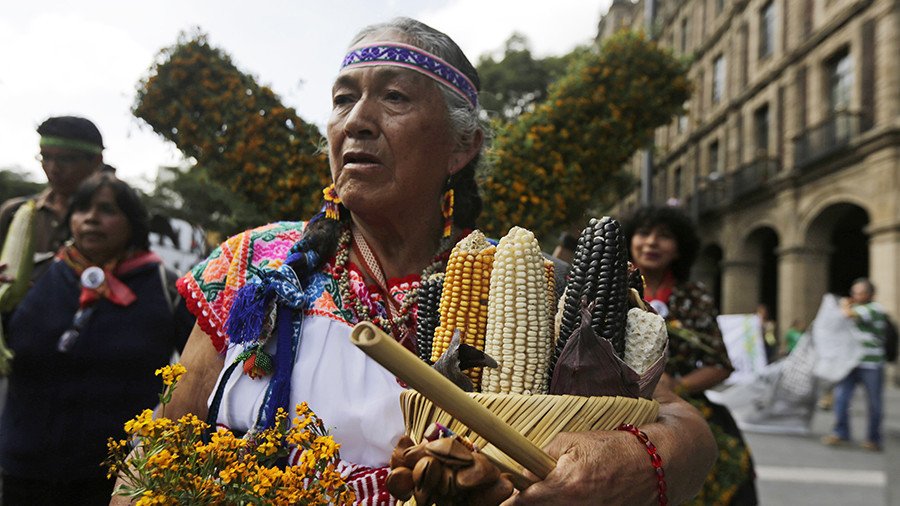Mexico revokes Monsanto’s permit to market GMO soy

The US agrochemical company Monsanto said Mexico’s agriculture sanitation authority SENASICA had revoked its permit to commercialize genetically modified soy in seven states. The company criticized the decision as unjustified.
According to Monsanto, the permit had been withdrawn on unwarranted legal and technical grounds. It has warned that it would take the necessary steps to safeguard its rights and those of farmers using the technology.
#Monsanto sued by Brazilian soybean farmers over GMO seed https://t.co/cqS5UHhgd2
— RT (@RT_com) November 9, 2017
Mexican newspaper Reforma cited a SENASICA document saying the permit was revoked due to the detection of transgenic Monsanto soya in areas where it was not authorized.
Monsanto rejected the argument, claiming the authorities had not analyzed how the soy on which their decision was based was sown.
The revocation applies to the Mexican states of Tamaulipas, San Luis Potosi, Veracruz, Chiapas, Campeche, Yucatan and Quintana Roo. It follows a 2016 legal suspension of the permit.
#Monsanto sues California over weed killer cancer warnings as it 'violate the First Amendment' https://t.co/Ip0J9s9NPA
— RT (@RT_com) November 15, 2017
As the largest producer of genetically modified seeds Monsanto has for a long time wanted to grow corn in the birthplace of maize Mexico. Several years ago, the company submitted two applications for the commercial planting of GMO corn in Mexico. Both sought 700,000 hectares (1.7 million acres) in the northwestern state of Sinaloa, the country’s largest corn-producing area.
In January, a Mexican court upheld a late 2013 ruling that temporarily halted even pilot plots of GMO corn following a legal challenge over its effects on the environment.












